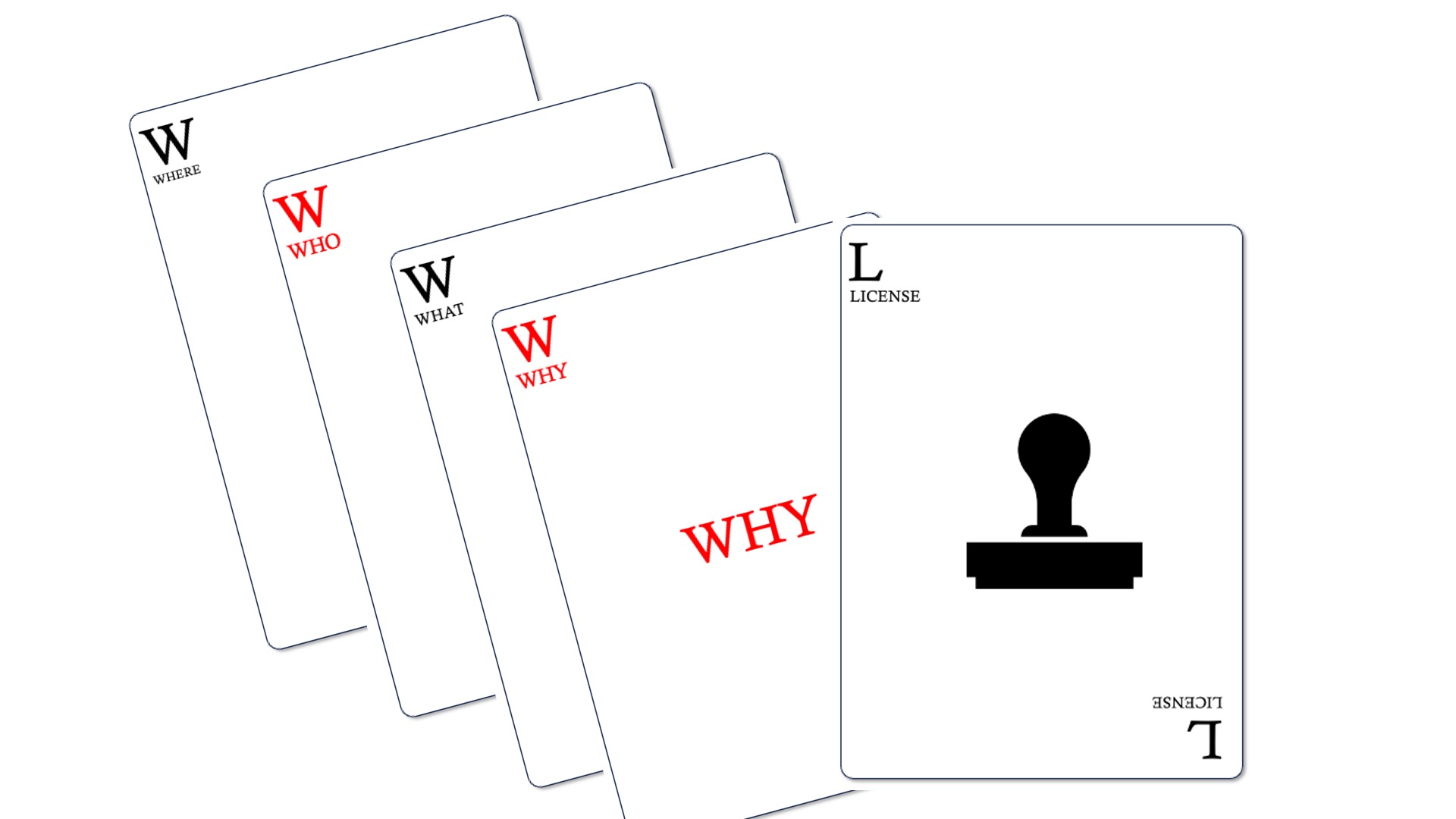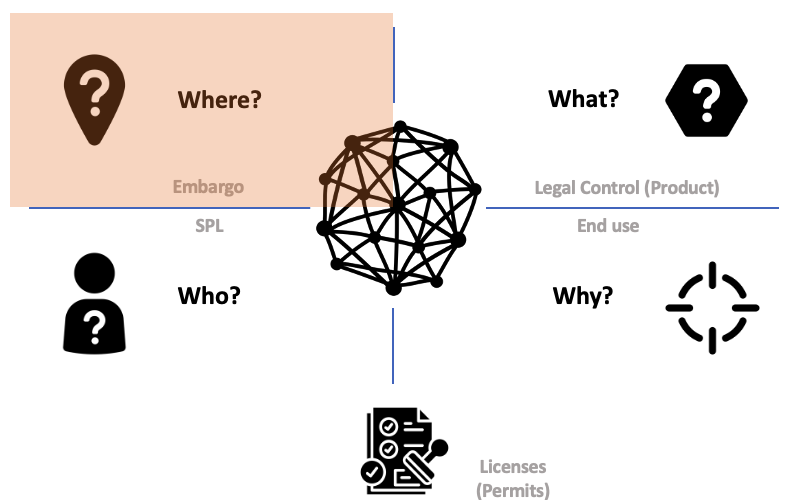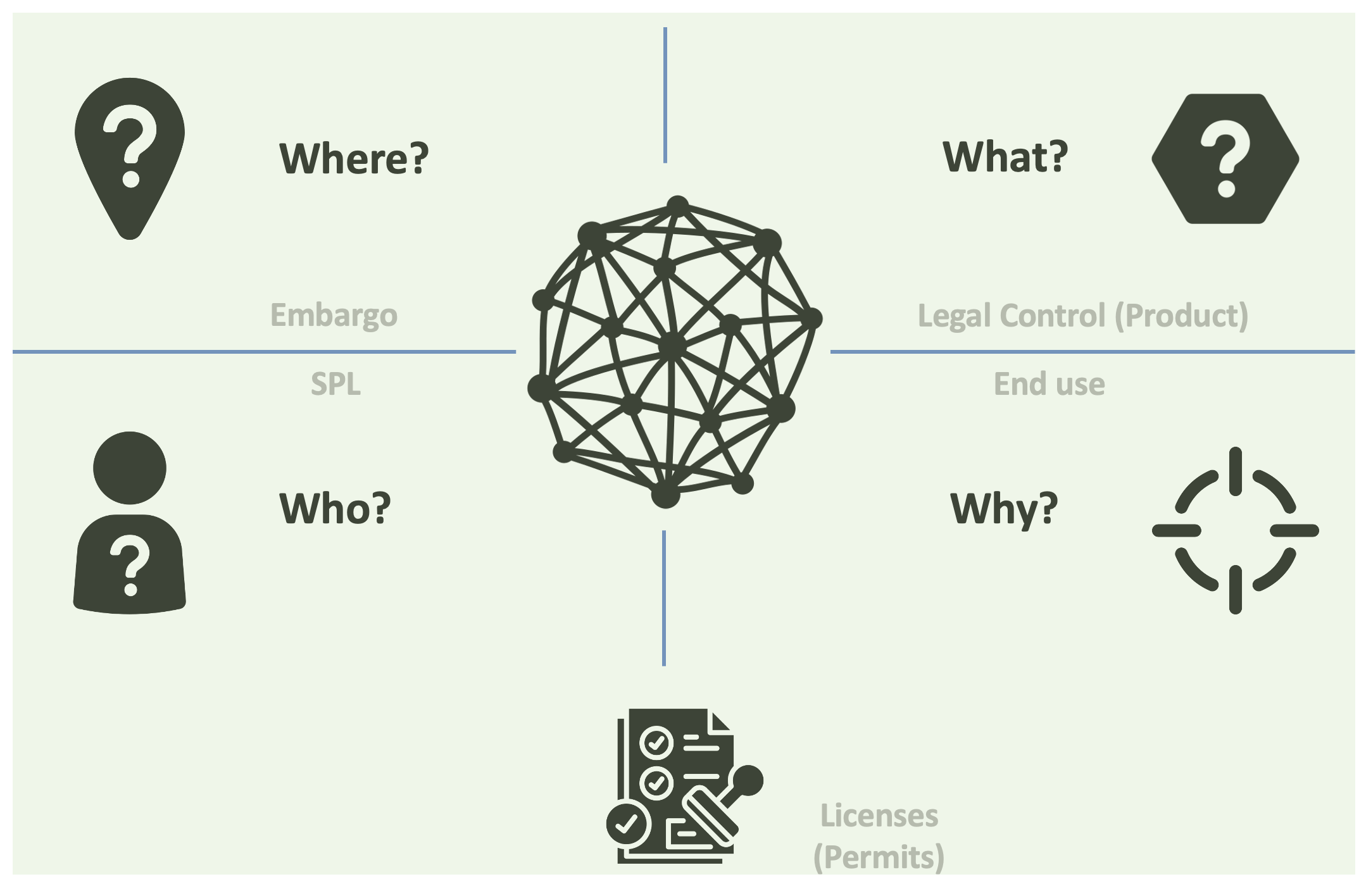
- SAP Community
- Products and Technology
- Financial Management
- Financial Management Blogs by SAP
- The Where, the Who, the What, and the Why of Trade...
- Subscribe to RSS Feed
- Mark as New
- Mark as Read
- Bookmark
- Subscribe
- Printer Friendly Page
- Report Inappropriate Content

Where, Who, What, and Why are the four critical cornerstones you should expect to see covered in the international trade compliance solution you have implemented or plan to implement in your company. In addition, the solution should have an integrated and coherent way of dealing with the special permits that allow goods that would typically have been sanctioned to still move. In SAP, these permits are referred to as licenses and agreements.
1. Where
An official ban on trade or other commercial activity with a particular country based on the destination or ship-to-address of the business transaction is, by SAP, referred to as an embargo; in other words, a trade ban based on where the goods or services are destined. Some embargoes are based on the combination of the ship-to-address and ship-from-address.

Companies that fail to comply with embargo regulations face heavy fines and penalties.
2. The Who
Sanctioned or Restricted Part Listy Screening is probably the best-known element of a compliance solution. A sanctioned party list contains a list of persons and entities with whom trade is prohibited. Government agencies issue sanctioned party lists, which in turn can be obtained from data providers. Sanctioned party lists are binding for all traders, independent of, for instance, their size, industry, and products. During the screening processes, business partner names & and addresses are compared with the relevant sanctioned party lists, and business partners and transactions will be blocked from further processing. Due to differences in data quality, a sanctioned party list screening solution must be able to find potential matches based on "fuzzy logic" to ensure that differences in spelling and other deviations are taken into consideration.
A blog on how this is done with SAP HANA Search in SAP GTS can be found here.

Companies that fail to comply with SPL regulations will, just as with embargoes, face heavy fines and penalties.
3. The What
Many sanctions are product-related. Laws that govern the export of goods from a country or the import into a country are in SAP called legal regulations.
Export control is legislation that regulates the export of goods, software, and technology. Many governments implement such controls. Typically, legislation lists and classifies the controlled items, classifies the destinations and requires exporters to apply for a license from a local government department. As an example of the extent of these laws, the US export control law also applies to US goods, technology, and software components in other products later exported as finished goods. This applies regardless of the finished product's country of origin and the company's location.
4. The Why
Some products can have different applications and are often called dual-use items.
The intended use, or the why, is therefore also important. Buyers of these goods may have to document and declare the intended usage through end-user declarations, or governments may issue the necessary permits based on the qualification of and the assessment of the buyer. Buyers must also document and guarantee that they are the actual end-user of the product, and in case of reselling, applicable measures must be applied, including end-user statements from the relevant end-users.

5. Special Permits, a.k.a Licenses or Agreements
Any sanction normally prohibiting the movement of goods or services can be voided through special permits, also known as export licenses or import licenses. Some of these permits are available through general exceptions. In many cases, these permits are issued by relevant government authorities after careful assessment of the buyer, the destination country, and the intended use. Licenses are issued with validity periods, approved end-users, and quantity and value limitations. Use of the proper permits must be accounted for, and the necessary audit trails must be secured.

6. The Different Solutions SAP Offer
SAP has several tools that cover one or more of the 5 dimensions of Trade Compliance (the four Ws and licenses).
SAP Global Trade Services, edition for SAP HANA, supports sanctioned party list screening across sales, finance, procurement, and distribution. If a transaction fails a check, the software blocks it for immediate review. Work lists enable efficient processing of blocked documents, and user-friendly process statuses escalate questionable entries. An automatic check of state embargoes is performed for incoming and outgoing goods. The system also enables the determination and application of the required approval regarding the dual-use regulation, International Traffic in Arms Regulation (ITAR), US re-export controls, and many other export regulations.
SAP S/4HANA for international trade: The international trade capability in SAP S/4HANA provides legal control and embargo checks and the possibility to integrate SAP Watch List Screening and/or SAP Global Trade Services for SPL controls. For a detailed comparison between SAP GTS and SAP S/4HANA for international trade please look here.
SAP Business Integrity Screening helps you avoid doing business with high-risk or sanctioned parties by screening against lists from government agencies, international organizations, and private content providers. The scope of SAP Business Integrity Screening goes beyond the requirements of Trade compliance. These capabilities are not part of this evaluation as they fall outside the scope of trade compliance.
SAP Watch List Screening helps you and your business avoid getting involved with high-risk or sanctioned businesses, individuals, and entities. It does this by screening against lists from government agencies and international organizations.

* Please see here.
7. Conclusions
- SAP Global Trade Services is the only solution from SAP that covers all aspects of trade compliance and provides one coherent user experience for issue resolution.
- SAP S/4HANA for international trade provides a subset of functionalities found in SAP GTS and covers basic requirements for many organizations, with the exception of sanctioned party list screening. SPL can be achieved by integrating, for instance, with SAP Watch List Screening.
- SAP Business Integrity Screening and SAP Watch List Screening focus on the "Who", and are therefore not full-service solutions in the area of trade compliance. They may still play an important role, depending on scope and ambitions.
- SAP Managed Tags:
- SAP Global Trade Services
You must be a registered user to add a comment. If you've already registered, sign in. Otherwise, register and sign in.
-
Business Trends
145 -
Business Trends
15 -
Event Information
35 -
Event Information
9 -
Expert Insights
8 -
Expert Insights
29 -
Life at SAP
48 -
Product Updates
521 -
Product Updates
63 -
Technology Updates
196 -
Technology Updates
10
- SAP Sustainability für Financial Services - Portfolio & Lösungen in Financial Management Blogs by SAP
- SAP Sustainability for Financial Services - Portfolio and Solutions in Financial Management Blogs by SAP
- Group valuation in intercompany scenario in Financial Management Q&A
- GRC Tuesdays: Takeaways from the 2024 Internal Controls, Compliance and Risk Management Conference in Financial Management Blogs by SAP
- SAP advanced treasury and risk management package for GROW with SAP in Financial Management Blogs by SAP
| User | Count |
|---|---|
| 2 | |
| 2 | |
| 2 | |
| 1 | |
| 1 | |
| 1 |